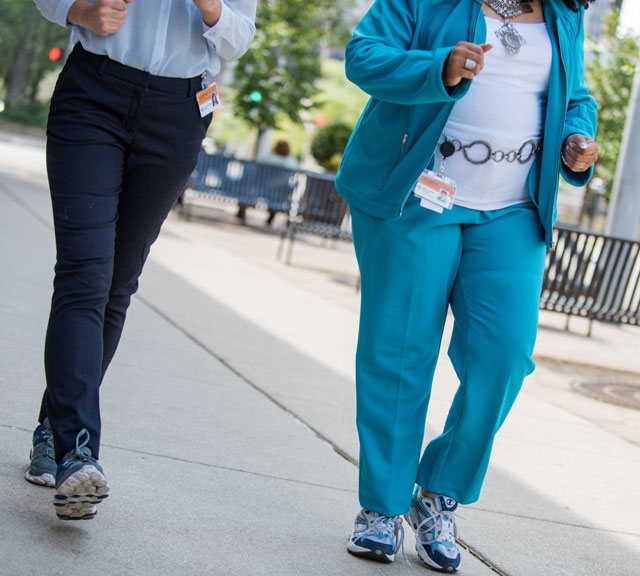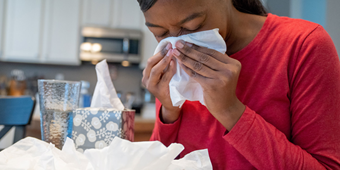An Owner’s Guide to Healthy Lungs

Find Your Perfect Match
Answer a few questions and we'll provide you with a list of primary care providers that best fit your needs.
Breathing’s so natural. You give it little thought. At least, not when your lungs work as they should. And when breathing seems effortless.
But whether you notice them or not, your lungs deserve your attention and care — because every cell of your body counts on them and the oxygen they supply.
How Your Lungs Work
With each breath, oxygen travels down your windpipe, or trachea, to two branching airways, or bronchial tubes. From these, the oxygen enters thinner tubes, bronchioles, which branch out and end with tiny air sacs, or alveoli — more than 300 million of them in a normal lung.
Through the thin walls of the air sacs, oxygen passes into small blood vessels, or capillaries, which carry oxygen-rich blood to larger veins and to your heart. Your heart pumps the blood throughout your body.
On the return trip to your lungs, your blood vessels carry waste gases, or carbon dioxide, to the air sacs — to be exhaled by the lungs. With each breath, the cycle continues.
As you age, though, lung capacity and function naturally decline.
When you sit up straight, you give your lungs a little more breathing room.
How to Be Good to Your Lungs

You can slow this process and reduce your risk of respiratory illness, such as chronic obstructive pulmonary disease (COPD), by following these tips:
- Exercise: Give your lungs a daily workout of 20 to 30 minutes of moderate intensity aerobic exercise, such as brisk walking, swimming or bicycling.
When you’re at rest or going about most routine activities, your lungs work at about 50 percent of their capacity. Exercise helps them expand to their potential. Plus, exercise improves your heart health and can lift your mood.
- Don't smoke: Cigarette smoke narrows the air passages of your lungs. This makes breathing more difficult. And over time, the smoke destroys lung tissue, which raises your risk of lung cancer and COPD, which includes chronic bronchitis and emphysema. If you already smoke, you’ll benefit from quitting.
- Avoid breathing pollutants: That includes secondhand cigarette smoke, outdoor air pollution, and chemicals at home and work. Avoid outdoor exercise on poor air quality days, which can be common in the heat of summer.
- Prevent respiratory infection: Wash your hands often with soap and water. Avoid crowds during cold and flu season. Brush your teeth at least twice a day and see your dentist at least every six months. Get a flu shot and ask your health care provider if you should also be vaccinated against pneumonia. When you do get sick, stay home from work or school.
- Get regular check-ups: Without regular visits to your health care provider, lung diseases can go undetected until they’re serious.
- Practice breathing exercises: To help keep your lungs healthy and improve their capacity, practice diaphragm, or “belly,” breathing. As you slowly inhale, expand your belly outward and focus on lowering your diaphragm, the horizontal muscle that separates your lungs from your abdominal organs below. This gives your lungs more room to expand. As you do this, expand and lift your upper chest.
Once your lungs are full, exhale as completely as possible, pulling your stomach muscles in and lifting your diaphragm to push out the last of the air.
- Sit up straight: Slouching decreases your lungs’ capacity. When you sit up straight, you give your lungs a little more breathing room.
- Drink plenty of water: Staying well hydrated benefits your entire body, including your lungs. Fluids help the linings of the lungs stay thin, which helps the lungs work better.
Find Your Perfect Match
Answer a few questions and we'll provide you with a list of primary care providers that best fit your needs.
Source: American Lung Association; Rush University Medical Center; National Heart, Lung and Blood Institute




